
Two plaintiffs have filed a class action lawsuit alleging a defect in Chrysler 300 and Dodge Charger door panels.
Lead plaintiff Dorothea Johnson, a California resident who owns a used 2016 Chrysler 300C, and plaintiff Jason Player of Texas who drives a new 2016 Dodge Charger, allege the vehicles’ maker sold the automobiles knowing they were defective.
According to the class action lawsuit, FCA US has refused to fix the problem, forcing vehicle owners to either suffer with the defect or spend thousands on repairs.
In addition, the plaintiffs say, the defect “raises serious safety concerns” about whether the vehicles’ side air bags, anti-theft systems, and other components are able to function properly.
The Chrysler 300 is a four-door luxury vehicle, while the Dodge Charger is a “muscle car,” according to the class action lawsuit. The vehicles at issue in this complaint include all Chrysler 300s and Dodge Chargers and Daytonas — “a modified version of the Charger” — of model years 2014 through 2021. If sales of vehicles with the alleged defect continue beyond the 2021 model year, those would be included, as well.
The plaintiffs allege the interior Chrysler 300 and Dodge Charger door panels can “peel away” from the vehicle’s frame. While the problem primarily lies with the front driver and passenger doors, the back doors also are affected in some cases.
“Essentially the interior door panels begin to separate and rise up next to the window, generally expanding to cross nearly the entire bottom of the window,” the class action lawsuit says.
In addition, the alleged defect causes smaller panels to “pull away from the center console,” and the dashboard to pull away from the windshield.
The plaintiffs maintain FCA US knew about the defect in the Chrysler 300 and Dodge Charger door panels long before the plaintiffs purchased their vehicles.
Johnson and Player believe the defendant knew about the defect by at least 2015 because of pre-release evaluation, repair data, early customer complaints made to the company, and other sources.
Even so, FCA US took no action to correct the defect in the Chrysler 300 and Dodge Charger door panels, “actively” concealing it from consumers, the class action lawsuit says. The company also continued to misrepresent the vehicles’ trim quality in its marketing.
The “degradation occurs over time,” the class action lawsuit says, meaning “it is a hidden defect of which customers are not aware at the time of purchase.”
The plaintiffs argue that because the cost of the vehicles is substantial — more than $40,000 — “the Defect is the furthest thing customers would or should expect.”
While the company does offer a warranty, the defect doesn’t always show up during the warranty period, the plaintiffs say.

Furthermore, the replacement panels typically begin to show the defect once the vehicle is out of warranty, the plaintiffs say. And at that point, FCA US’ policy is to not pay repair or replacement costs if the vehicle is outside its warranty.
“Thus, Defendant has failed to provide a permanent, in-warranty fix for the Defect,” the class action lawsuit says. “This partial or temporary fix does not meet Defendant’s obligation pursuant to the warranty.”
Despite these repairs and a large number of customer complaints, FCA US has decided not to recall the vehicles or issue a service bulletin regarding the defect, the plaintiffs claim.
“This decision has been made solely to save money.”
According to the class action lawsuit, a recall would be appropriate because the Chrysler 300 and Dodge Charger door panels defect could pose safety issues: The doors’ “inner cavity” can be exposed, potentially altering the performance of the vehicles’ side airbags as well as exposing the locking mechanism and allowing hot or cold air into the vehicles.
“In its worst manifestations, the Defect presents multiple safety violations in several areas of the Subject Vehicles,” the complaint says. “In nearly all cases, the Defect presents serious safety concerns.”
The plaintiffs accuse FCA US of breaches of warranty, implied warranty and the Magnuson Moss Warranty Act; fraud by concealment; unjust enrichment; and other Texas and California code violations.
With their class action lawsuit, Johnson and Player seek injunctive relief, compensatory damages, attorneys’ fees and other relief.
They also demand a jury trial.
Do you drive a Dodge or Chrysler? Have you noticed this door panel defect? Let us know in the comments.
The plaintiffs are represented by Tyler W. Hudson, Eric D. Barton and Austin P. Brane of Wagstaff & Cartmell LLP; and E. Adam Webb and Matthew C. Klase of Webb, Klase & Lemond LLC.
The Dodge Charger Door Panels Class Action Lawsuit is Dorothea Johnson, et al. v. FCA US LLC, Case No. 2:20-cv-08314, in the U.S. District Court for the Central District of California, Western Division.
Read About More Class Action Lawsuits & Class Action Settlements:




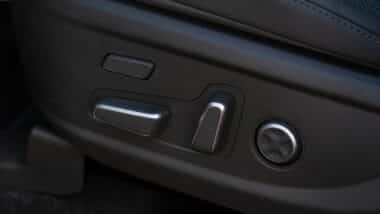


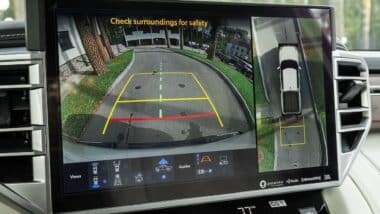
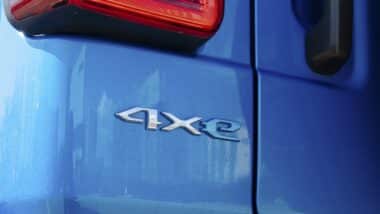


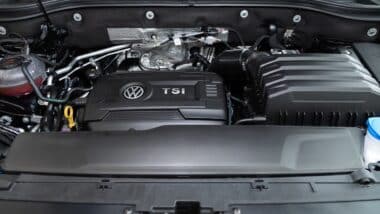


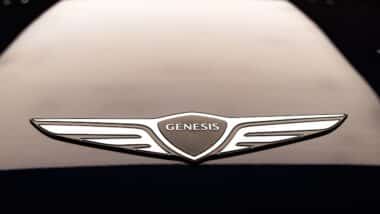
1,536 thoughts onClass Action Lawsuit Alleges Dodge Charger Door Panels Defect
I have a 2018 Dodge Charger. The passenger door panel is peeled badly, my driver side door panel is peeling away in the middle
I have 2018 and my stuff is peeling but it started doing that a year after I got it they said they couldn’t do anything so we glue the top of the doors now the bottom is peeling up and the dash and my radio went out a year after I got it had to replace it .
All of my door panels on my 2016 Dodge Charger have pulled away from the frame. There is about a 2 inch gap.
The passenger door panel is pull away on my 2018 dodge charger (there is about 1” gap in the middle section).